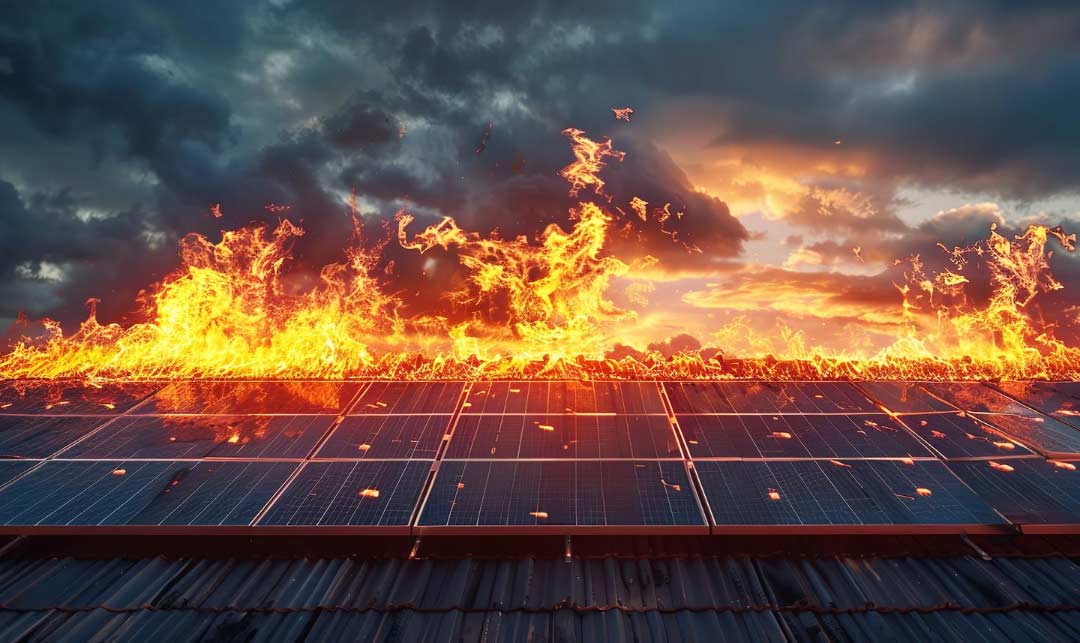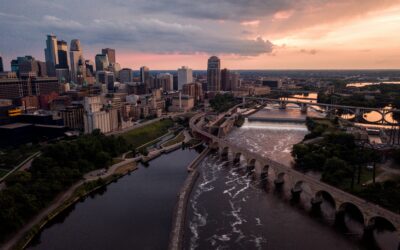With over a million roofs with solar across the US, more homeowners than ever are investing in solar for energy independence and savings.
But with that growth in homeowners owning their power and ditching the power company, some common concerns come up. Like is installing solar on your roof a fire risk?
Keep reading as we cover the basics of fire safety for rooftop solar.
Rooftop Solar and Fire Risks
First, let’s go over some solar basics. Solar panels harness the power of the sun via a chemical reaction.
The silicon wafers that make up the panels react to UV light, and turn that into electricity. While panels can get fairly warm, they’re also designed to withstand temperature extremes up to 185 degrees fahrenheit.
A professionally installed solar energy system will also come with built in safety mechanisms like an automatic shutoff, which turns the whole system off if something goes wrong.
Ultimately, if you have your system installed by a trustworthy solar installation company, you should feel safe knowing that your solar panels pose relatively low to no risk.
What Causes Rooftop Fires with Solar
According to Energy.gov, issues like “design flaws, component defects, and faulty installation” are the main source of fires caused by solar.
Every homeowner who goes solar should also know about proper solar panel maintenance. The best part is that it’s as simple as grabbing your garden hose, a spray nozzle, and rinsing your panels down.
Avoiding things like abrasive brushes, scrubs, and other tools that could damage the face of the solar panels also helps to avoid interference with the proper functioning of the panels.
By only rinsing your panels off every so often, you’ll not only help to keep panels at peak function, but avoid any damage that could increase your fire risk.
Solar Has Built in Fire Safety
As we already mentioned above, a professionally and properly installed solar panel array will come with built in systems to avoid issues related to overheating and power outages.
That’s important for grid tied solar especially since homeowners can send excess power their home doesn’t need back onto the grid. Homeowners with grid tied solar receive a credit for helping supply their community with clean energy.
Having an emergency automatic shut off built into the solar energy system means that no electricity gets sent back onto part of the grid during a power outage.
Because every solar energy system that is up-to-code comes with an automatic shut off, your system is easily shut off if a problem is detected.
Solar: Safe For Your Roof?
As solar becomes more common, organizations like the Interstate Renewable Energy Council are working with communities and fire departments to educate on fire safety and rooftop solar.
But what about solar safety overall? There are a few things to know:
Photovoltaic solar panels, the most commonly installed kind for residential solar, don’t leach any chemicals or substances as they sit on your roof.
Solar panels and the racking they attach to roofs with, are designed to withstand some pretty intense weather extremes including Category 3 hurricane winds, hail falling at up to 50 miles per hour, and over 100 lbs of snow per square foot.
Finally, roofs with solar installed can actually last longer than those without. When properly installed, solar acts as a sort of shield, protecting the roofing material from daily wear and tear.
Go Solar Safely with Your Local Solar Experts
Ready to make the switch to owning your energy with clean, affordable rooftop solar?
Purelight Power is the local solar expert across Oregon, Iowa, and Montana helping homeowners go solar and save.
Find out in 60 seconds if your roof qualifies for solar with $0 down.





